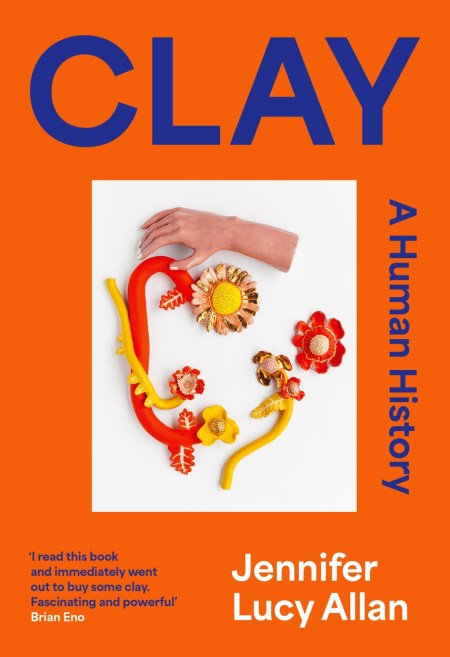‘Clay contains infinite possibilities in its transmutations, evidenced on the shelves of our homes, our galleries and museums. Every time we make something with clay, we engage with the timelines that are in the material itself, whether it was dug from a clifftop, riverbed or pit. In firing what we make, we bestow the material with function, meaning, or feeling, and anchor its form in a human present… Objects made from clay contain marks of our existence that collectively tell the story of human history more completely than any other material. There is a reason there are so many pots in museums: because fired clay is one of the most effective keepers of stories we have.’
This book is a love letter to clay, the material that is at the beginning, middle and end of all of our lives; that contains within it the eternal, the elemental, and the everyday.
People have been taking handfuls of earth and forming them into their own image since human history began. Human forms are found everywhere there was a ceramic tradition, and there is a ceramic tradition everywhere there was human activity. The clay these figures are made from was formed in deep geological time. It is the material that God, cast as the potter, uses to form Adam in Genesis. Tomb paintings in Egypt show the god Khnum at a potter’s wheel, throwing a human. Humans first recorded our own history on clay tablets, the shape of the characters influenced by the clay itself. The first love poem was inscribed in a clay tablet, from a Sumerian bride to her king more than 4000 years ago.
Born out of a desire to know and understand the mysteries of this material, the spiritual and practical applications of clay in both its micro and macro histories, Clay: A Human History is a book of wonder and insight, a hybrid of archaeology, history and lived experience as an amateur potter.
This book is a love letter to clay, the material that is at the beginning, middle and end of all of our lives; that contains within it the eternal, the elemental, and the everyday.
People have been taking handfuls of earth and forming them into their own image since human history began. Human forms are found everywhere there was a ceramic tradition, and there is a ceramic tradition everywhere there was human activity. The clay these figures are made from was formed in deep geological time. It is the material that God, cast as the potter, uses to form Adam in Genesis. Tomb paintings in Egypt show the god Khnum at a potter’s wheel, throwing a human. Humans first recorded our own history on clay tablets, the shape of the characters influenced by the clay itself. The first love poem was inscribed in a clay tablet, from a Sumerian bride to her king more than 4000 years ago.
Born out of a desire to know and understand the mysteries of this material, the spiritual and practical applications of clay in both its micro and macro histories, Clay: A Human History is a book of wonder and insight, a hybrid of archaeology, history and lived experience as an amateur potter.
Newsletter Signup
By clicking ‘Sign Up,’ I acknowledge that I have read and agree to Hachette Book Group’s Privacy Policy and Terms of Use
Reviews
I read this book and immediately went out to buy some clay. Fascinating and powerful
Alchemical, magical, alive . . . a deeply engaging work about artists and their process, told through the stories of true outsiders and eccentrics, including Allan herself, whose vibrant and visceral musical language made me completely obsessed with a subject I knew nothing about
A captivating exploration of humanity's relationship with the material . . . this book is a love letter to clay
An engrossing history of the deep connection between humans and clay, electrified by a ceramicist's passion
From the earliest earthenware to the history of porcelain, along with the author's own progress working with different clays and glazes, I have loved learning from every chapter in this beautiful and affecting book
A mesmerising history of the practical, spiritual and artistic uses of clay, a deceptively simple material that has, in many ways, helped shape human history. Ranging across time and place, this wonderful book opens up a world of wonder. I learned so much from it - and couldn't put it down
Allan's writing goes beyond the physical, revealing not only how we shape and adapt clay, but the profound meaning at the heart of it . . . will inspire you to look upon your pots with new insight
Clay is a joy to read . . . it made me want to learn to be a potter all over again
An absorbing work from such an original, enthusiastic writer
It is this freshness of perspective, a new slant on a familiar medium, that makes Clay so compelling

